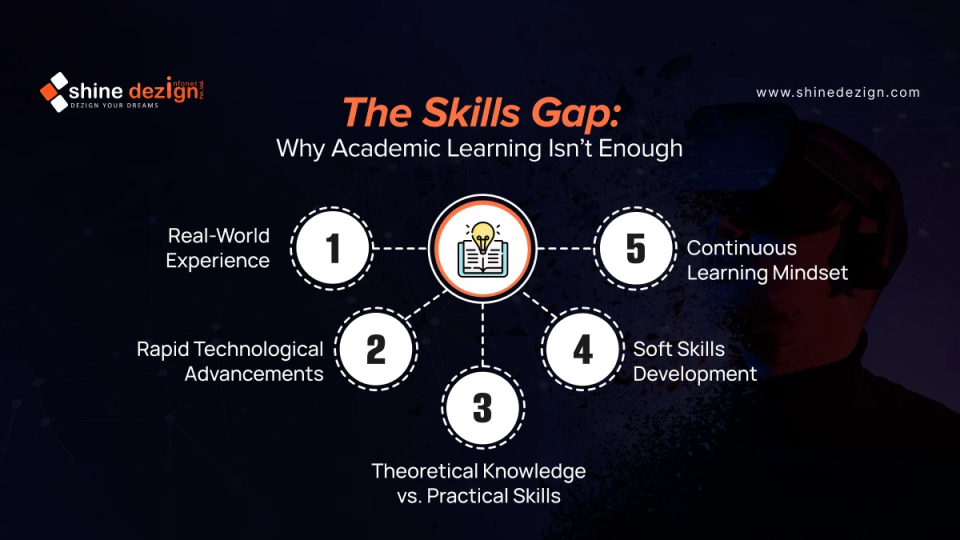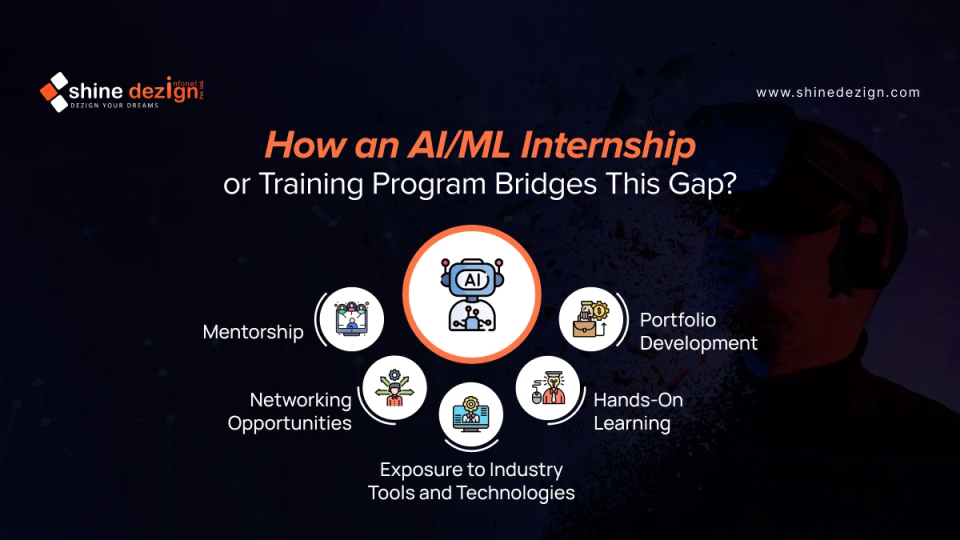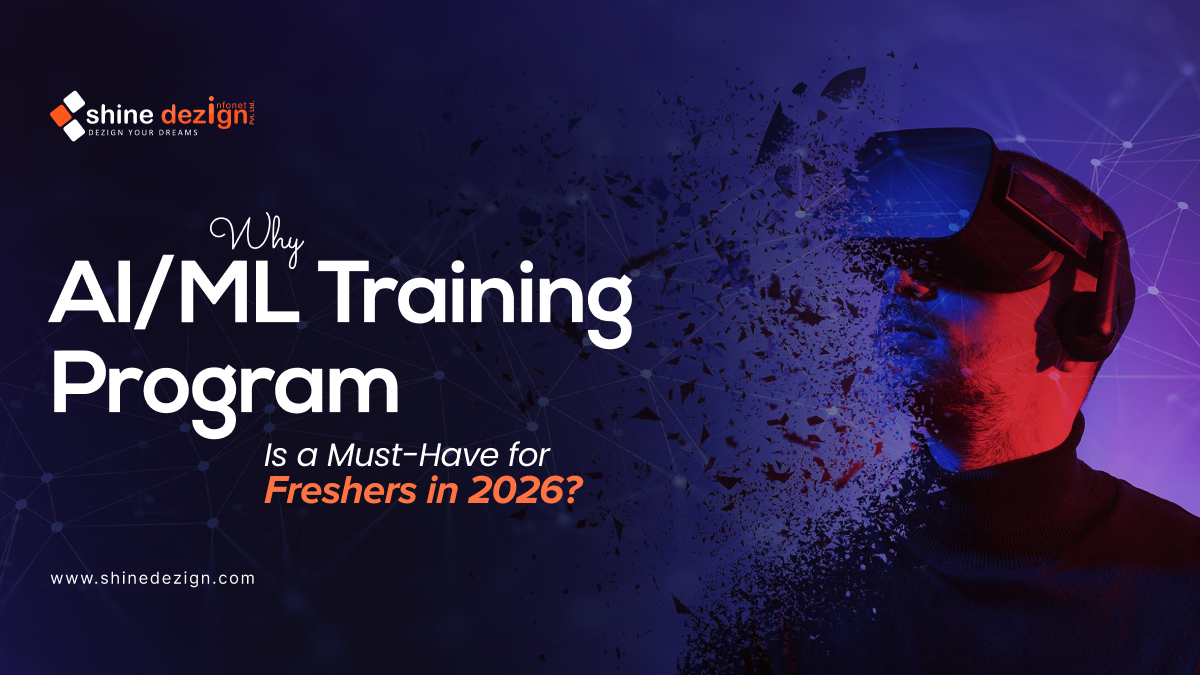Understanding Artificial Intelligence (AI) and Machine Learning (ML) is becoming increasingly essential for students and freshers, as AI/ML training is essential to meet the growing demand of skilled professionals.
This blog explores the importance of enrolling in an AI/ML training program, highlighting the skills gap and the benefits of hands-on experience. By equipping themselves with the right knowledge, freshers can pave the way for a successful career in this dynamic field.
The AI/ML Job Market in 2026: Why Now Matters?

Growing Demand: The demand for AI and ML professionals is skyrocketing. According to industry reports, the global AI market is expected to reach up to $380 billion by 2025. This growth is driven by the increasing adoption of AI technologies across various sectors, including healthcare, finance, retail, and manufacturing. Companies are looking for fresh talent to help them leverage AI for better decision-making, automation, and customer engagement.
Diverse Opportunities: The job market for AI/ML roles is not only expanding but also diversifying. Freshers can explore various career paths, including:
- Machine Learning Engineer: Focuses on designing and implementing machine learning algorithms. The average salary for this profile in India ranges between ₹7L – ₹20.0L/yr.
- Data Scientist: Analyzes complex data sets to derive actionable insights. The average salary for this profile in India ranges between ₹8L – ₹20.0L/yr.
- AI Research Scientist: Engages in cutting-edge research to develop new AI technologies. The average salary for this profile in India ranges between ₹16.8L – ₹26.9L/yr.
- AI Product Manager: Oversees the development and deployment of AI-driven products. The average salary for this profile in India ranges between ₹17.4L – ₹37.3L/yr.
(Source: Glassdoor)
These roles often come with attractive salary packages, making them appealing to new graduates.
Industry Adoption: As businesses increasingly adopt AI/ML technologies, the need for skilled professionals becomes more pressing. Companies are investing in AI to improve operational efficiency, enhance customer experiences, and drive innovation. This trend underscores the importance of equipping freshers with the necessary skills to meet industry demands.
Future-Proofing Careers: Investing in AI/ML training not only prepares freshers for current job opportunities but also future-proofs their careers. As AI continues to evolve, professionals with a strong foundation in AI/ML will be better positioned to adapt to new technologies and methodologies, ensuring long-term career sustainability.
The Skills Gap: Why Academic Learning Isn’t Enough

Theoretical Knowledge vs. Practical Skills: While academic institutions provide a solid foundation in computer science and mathematics, they often fall short in delivering practical, hands-on experience. Employers are looking for candidates who can not only understand theoretical concepts but also apply them in real-world situations.
Rapid Technological Advancements: The field of AI/ML is evolving at an unprecedented pace. New algorithms, frameworks, and tools are constantly emerging, making it challenging for academic programs to keep up. Freshers who rely solely on their academic education may find themselves ill-prepared for the demands of the job market.
Real-World Experience: Employers increasingly prioritize candidates with practical experience. Internships, projects, and training programs provide freshers with the opportunity to work on real-world problems, enhancing their employability. This experience is invaluable in helping students understand the nuances of AI/ML applications in various industries.
Soft Skills Development: In addition to technical skills, the AI/ML job market also demands strong soft skills such as communication, teamwork, and problem-solving. Training programs often incorporate group projects and presentations, helping participants develop these essential skills that are crucial for success in collaborative work environments.
Continuous Learning Mindset: The rapid pace of change in AI/ML technologies necessitates a mindset of continuous learning. Training programs instill this mindset in freshers, encouraging them to stay updated with the latest trends and advancements in the field, which is vital for long-term career growth.
How an AI/ML Internship or Training Program Bridges This Gap?

Hands-On Learning: AI/ML training programs are designed to provide hands-on experience through projects and case studies. Participants work on real datasets, allowing them to apply theoretical knowledge in practical scenarios. This experiential learning is crucial for developing problem-solving skills and technical expertise.
Mentorship: Many training programs offer mentorship from industry professionals. This guidance helps students navigate the complexities of AI/ML, providing insights into best practices, industry trends, and career development. Mentors can also offer valuable networking opportunities, connecting students with potential employers.
Networking Opportunities: Training programs often facilitate networking events, workshops, and seminars where students can interact with industry leaders and fellow participants. Building a professional network is essential for career advancement, as it opens doors to job opportunities and collaborations.
Portfolio Development: Participating in training programs allows freshers to build a portfolio of projects that showcase their skills and expertise. A strong portfolio is a powerful tool for job seekers, as it provides tangible evidence of their capabilities and experience to potential employers.
Exposure to Industry Tools and Technologies: Training programs often include exposure to the latest tools and technologies used in the AI/ML industry. Familiarity with these tools not only enhances participants’ technical skills but also makes them more attractive to employers who seek candidates with practical knowledge of industry-standard software.
Who Should Join an AI/ML Training Program?
College Graduates: Fresh graduates from computer science, engineering, mathematics, or related fields can benefit significantly from AI/ML training programs. These programs enhance their resumes and provide them with the skills needed to stand out in a competitive job market.
Job Seekers: Individuals looking to transition into the tech industry or pivot their careers towards AI/ML will find training programs invaluable. These programs equip them with the necessary skills and knowledge to make a successful career change.
Tech Enthusiasts: Anyone with a passion for technology and a desire to learn about AI and ML applications can benefit from these training programs. Whether you are a self-taught programmer or a recent graduate, there is always something new to learn in this rapidly evolving field.
What are the Key Highlights of Our AI/ML Training Program?
Comprehensive Curriculum: Our AI/ML training program covers a wide range of topics, including:
- Classical Machine Learning: Understanding algorithms like linear regression, decision trees, and clustering.
- Deep Learning: Exploring neural networks, convolutional networks, and recurrent networks.
- Generative AI: Learning about generative adversarial networks (GANs) and their applications.
- MLOps: Understanding the deployment and operationalization of machine learning models.
Flexible Learning Options: We offer flexible learning options, including 6-month and 6-week training programs. This allows participants to choose a schedule that fits their needs, whether they are studying full-time or working part-time.
Guaranteed Certification: Upon successful completion of the program, participants receive a certificate that validates their skills and knowledge in AI/ML. This certification enhances their employability and serves as a testament to their commitment to professional development.
Placement Opportunities: Our training program includes in-house placement options for deserving candidates. We work closely with industry partners to connect participants with job opportunities, helping them secure positions in leading companies.
Live Projects: Participants work on live projects that simulate real-world challenges. This hands-on experience not only builds technical skills but also helps students create a strong portfolio to showcase to potential employers.
Conclusion
In conclusion, enrolling in an AI/ML training program is essential for freshers in 2026. The rapidly evolving job market, coupled with the widening skills gap, makes it imperative for students to gain practical experience and industry-relevant skills. By participating in a comprehensive training program, freshers can position themselves as valuable assets in the tech industry, ready to tackle the challenges of tomorrow.
Your questions, our answers
The AI/ML training program offers flexible hours, including a 6-month and a 6-week program, allowing participants to choose based on their schedules and learning preferences.
While a background in computer science, engineering, or mathematics is beneficial, it is not mandatory. The program is designed to accommodate beginners and provides foundational knowledge to help all participants succeed.
AI is a broader concept that encompasses various technologies aimed at simulating human intelligence, while ML is a specific subset of AI focused on algorithms that learn from data.
Ethical considerations include issues related to bias in algorithms, privacy concerns, job displacement, and the potential for misuse of technology. Understanding these implications is crucial for responsible AI development.
Yes, participants will receive a certificate upon successful completion of the AI/ML training program. This certification validates your skills and knowledge in AI/ML, enhancing your employability in the job market.













